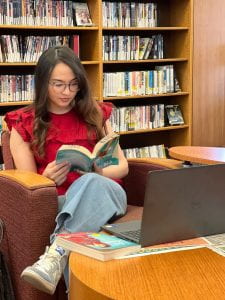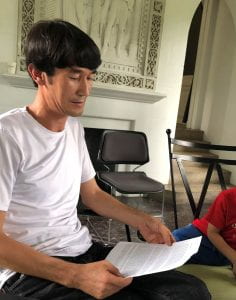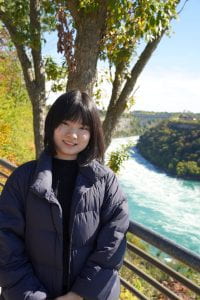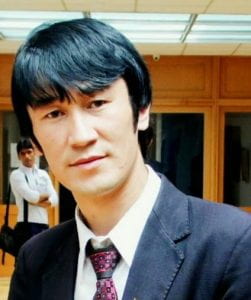A Strong Willed Woman: A Biography of Samira Rustami
By Uma (a pseudo name)
March 2023

Samira Rustami was born on October 16, 2001, in Kabul, Afghanistan. She lived her life under strict societal norms, widespread gender discrimination, and outright inequality. Despite those challenges, she finished school with excellent grades and completed her university degree. She fled Afghanistan due to the Taliban’s takeover and made it to the American land of freedom. Currently, she is working on her nursing degree.
Samira has five sisters, one brother, six aunts, two uncles, and many cousins. Because she had a big family, she spent her childhood mostly with her relatives without socializing with anyone outside her family. She had a disadvantaged position in society due to her gender and poor caste. In a country like Afghanistan, from the time a girl is born, society pressures them to give up on their dreams. “Repeatedly, I was reminded that I should not pick up a book or a pen. I just need to learn how to cook and clean to serve the family,” said Samira in an interview. If her parents found out that she secretly studied, they would tear her books or burn them. That was very different from the way her brother was raised. He was always showered with encouragement. She would often find herself wanting to be a boy instead.
In 2005, Samira went to school at the age of five. She was a top student in her class, and by twelve she was done with school. She loved her teachers, who inspired girls to get an education. After her graduation from high school, she received a scholarship to attend university because she had a high score in her entrance test.
In 2016, Samira read the book Malala Yousufzai[1], which inspired her. She applied to a university in India, and a year later she started to attend the university at the age of 16. Her uncle helped her financially, which brought her closer towards her dream. She studied there for three years and got her Bachelor’s of Business Administration in Finance. This was a remarkable achievement because, according to UNESCO’s data on Afghanistan, the literacy rate for women aged 15-24 in 2018 was 62%, and the gross enrollment ratio for females in tertiary education was 16% in 2019. Samira was persistent in pursuing higher education because she understood its value. To her, it meant freedom and independence.
In 2021, she got back to Afghanistan with the hope to find a job in the finance industry. Despite working hard to achieve her goals, never giving up, and continuing to search for opportunities, her gender continued to deter her employment options. Finally, she found a job at a five-star hotel. She worked there for seven months, but due to the Taliban’s takeover in Afghanistan in August 2021, she realized that she had to take a frightening risk and leave behind her whole life, achievements, and family members, who she might never see again. Samira and her husband left the country with a small backpack. She still cannot put into words her feelings about that day.
The population of Afghanistan is 40 million people, and by December 2021, approximately 8% of the population had been displaced. Samira and her husband got lucky, and they made it to the United States in August 2021. Despite ongoing challenges, the United States gave her another chance to improve her education career and pursue another bachelor’s degree under a partially funded scholarship at Chatham University.
Samira, who turned 22 years in October 2022 is taking classes at Chatham University and wants to become a nurse to help people. She has an adorable daughter and caring husband. Even though she had an extremely hard life in her childhood, she does not regret that. Furthermore, she hopes her story will inspire other young Afghan girls and encourage them to believe that they can achieve their goal too. Samira has a strong will, and nothing will stop her from achieving more.
- Malala Yosufzai: a writer who lived in a similar culture, who overcame every challenge and became famous






